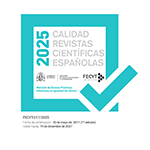Antonio Gramsci y la antropología médica contemporánea. Hegemonía, “capacidad de actuar” (agency) y transformaciones de la persona
Resumen
Este artículo tiene un solo objetivo: mostrar la urgencia para la antropología médica contemporánea de una lectura directa y reflexiva de la obra de Antonio Gramsci (1891-1937). El pensamiento dialógico y experimental de Gramsci parece eludir todas las clasificaciones interpretativas forjadas por sus exégetas, incluida la teoría antropológica. El autor de este artículo subraya la vocación antropológica de Gramsci, y explora tres grandes cuestiones en particular: hegemonía, agency y transformaciones de la persona. En Gramsci hay una atención dramática y reflexiva a la experiencia corporal del sufrimiento, a los procesos de incorporación, y al mismo tiempo una “observación comprometida” que puede ser calificada de etnográfica, de la microfísica de las transformaciones sociales, de la hegemonía del Estado y de la agency individual y colectiva. La crítica gramsciana puede empujar a la antropología médica contemporánea a enfatizar los aspectos políticos de los procesos de incorporación, con el objetivo de cuestionar la dicotomía salud-enfermedad para concebirla en su lugar como proceso sociopolítico. Ello implica el refuerzo de una metodología crítica, reflexiva y auto-objetivante en el propio campo científico-académico de la antropología médica.Descargas
Descarga artículo
Licencia
La Revista de Antropología Social, para fomentar el intercambio global del conocimiento, facilita el acceso sin restricciones a sus contenidos desde el momento de su publicación en la presente edición electrónica, y por eso es una revista de acceso abierto. Los originales publicados en esta revista son propiedad de la Universidad Complutense de Madrid y es obligatorio citar su procedencia en cualquier reproducción total o parcial. Todos los contenidos se distribuyen bajo una licencia de uso y distribución Creative Commons Reconocimiento 4.0 (CC BY 4.0). Esta circunstancia ha de hacerse constar expresamente de esta forma cuando sea necesario. Puede consultar la versión informativa y el texto legal de la licencia.












